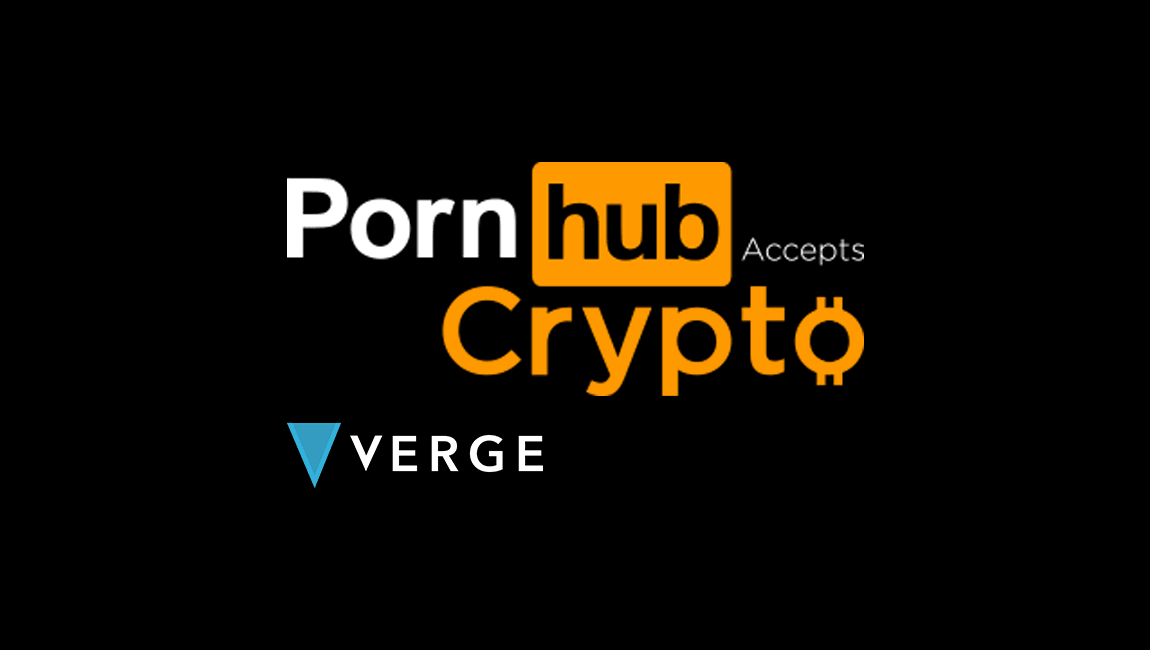Clad in balaclavas and carrying sacks of plastic coins redeemable for real cryptocurrency, porn stars stormed Wall Street last week with cries of “free money.” No late-night TV parody, the scene was rather meant to mark one of the most surprising announcements in crypto so far in 2018, the news that verge (XVG) had been officially added as a payment method on adult entertainment website Pornhub.
Indeed, with an average of 81 million visitors per day, the deal with the name-brand website has been heralded as a defining moment for the industry, one that has also done much to boost awareness of what was until April 17 among the lesser-known of the many privacy-centric cryptocurrencies.
But the news has stirred up criticisms as well.
A relatively small crypto asset by market cap, verge’s privacy measures have been long dismissed by some of the industry’s top researchers. As such, the response from the broader crypto community has been, at times, incredulous.
“I don’t view their deal with Pornhub as any endorsement or indication of their technical value,” Sarang Noether, a researcher at rival privacy-centric cryptocurrency monero, told CoinDesk. “It just indicates that you can make a deal with Pornhub if you pay millions of dollars.”
Of note in Noether’s comments is the nature of the Pornhub arrangement, which found the cryptocurrency’s users paying to incentivize the deal. In a matter of weeks, global verge users, or the “#vergefam” as they’re sometimes known, raised 75 million XVG, or $5.2 million, in donations toward the partnership.
And the payments are continuing to flood into the verge donation address, where they will eventually be put toward a strategy that verge core developer Justin “Sunerok” Valo described as “a global marketing campaign the likes of which you have never seen.”
“It’s going to change crypto in a really, really good way,” Valo told his fans.
But there’s a darker side to the promotion as well. Dismissed by one user as a “cult of teenagers,” verge’s avid followers are known for being outspoken, even going to war with the notorious security developer John McAfee on Twitter in what was allegedly a paid pump gone awry.
Perversely, though, some think the coin’s bad reputation might just increase its appeal.
Sarang told CoinDesk:
“If anything, I think verge will use this to push some kind of ‘bad boy of crypto’ image. Whether or not it succeeds, people now see it as the asset that a big porn site accepts.”
Dogecoindark
Stepping back, it’s worth noting that until recently, XVG was worth a fraction of a fraction of a cent.
A largely obscure cryptocurrency, it was originally created as “dogecoindark” back in 2014 by a little-known developer from Florida named Justin Valo, who has had some minor brushes with the law that he’s acknowledged as potentially related to recreational marijuana use.
A fork of the cryptocurrency named peercoin, dogecoindark aimed to achieve privacy by routing payments over Tor and IP2, two network anonymity protocols that conceal location data and IP addresses. Announced on the Tor mailing list, it was met by a cold reception, with a user replying that the “Tor community is not a suitable target for cheap scams using altcoins.”
In the peak of altcoin mania, the response on Bitcoin Talk, one of the oldest and most widely used forums for online cryptocurrency discussion, was similarly dismissive.
“If this coin makes it to an exchange, all hope is truly lost for crypto,” one user wrote.
Distinct from a closely woven pack of followers, dogecoindark remained largely unknown for several years. It rebranded to verge two years ago and saw brief price fluctuations as it was added to more exchanges.
According to Valo, the move corresponded with a software release that routed dogecoindark payments through IP2.
“The community decided we should rebrand to be taken more seriously,” Valo told CoinDesk.
Then, in December last year, the cryptocurrency went from $0.005 to $0.25 in a matter of days.
The boost corresponded with a tweet by John McAfee, founder of anti-viral McAfee software, who wrote that alongside monero and zcash, privacy-centric cryptocurrencies like verge “cannot lose.”
The tweet was allegedly accompanied by multiple statements by McAfee’s social media accounts predicting a meteoric rise for the cryptocurrency. McAfee later said these accounts were fake, and that the verge price had been “wrongly pumped beyond reason.”
Imperfect privacy
In technical circles, the reaction has been similar. Days after the McAfee incident, a website was published that leaked the location data of verge transactions.
The incident highlights another issue, that verge’s approach to privacy has long been a point of contention in the cryptocurrency space. Essentially, because its network routing protocol only conceals the location of its users – and not wallets, payments or identities – tracing analysis is easy to conduct.
“So much for Verge $XVG and their IP address privacy,” Riccardo Spagni, a core developer of monero, tweeted, with a link to the data dump. “Considering that IP address obfuscation is their single privacy claim, looks like they’re toast,” the developer wrote.
Still, the website was dismissed by the verge community as “fake news” and FUD, with others using the data dump as proof of the cryptocurrency’s aptitude.
“Those are just locations of Tor relay nodes,” Valo told CoinDesk. “None of those are our actual users’ home IP addresses.”
In a recent verge software release called the “wraith protocol,” the cryptocurrency project added so-called stealth addresses, a way to obscure the recipient of a transaction. Upcoming releases claim to include ring signatures, or RingCT, as well as smart contract and atomic swap capability.
But many in the cryptocurrency space are dismissive of these measures.
Sarang told CoinDesk:
“They make broad privacy claims that aren’t supported by their history, and they’re a perfect example of how the market generally can’t identify good design.”
Mining attack
But the privacy leak wasn’t the first attack.
Just weeks before the Pornhub partnership was announced, a hacker took over the verge blockchain, mining one block a second and printing millions of XVG.
Posted by a mining pool operator named “ocminer” on Bitcoin Talk, the attack was a mining exploit that allowed an attacker to create low difficulty blocks by manipulating timestamps.
Citing allegations of developer negligence, ocminer called verge “an absolutely trashy shitcoin” that had been “pumped in heaven through that tweet from John McAfee.”
Speaking to Valo, the miner continued: “Invest it into a decent dev team, as seriously, and everyone knows that, you have not the slightest idea of coding whatsoever.”
According to Sarang, reports and discussions of the event were silenced on the verge subreddit, alongside critical discussions of privacy.
But such controversy’s have not diminished verge’s fanbase.
Valo told CoinDesk:
“Our community never ceases to amaze me. It’s really hard to wrap my head around how large it really is.”
Pact with the devil
But even the verge community is not without its doubts.
For example, prior to the Pornhub announcement, rumors were circulating its developers might even seek to abscond with funds. That’s because 8.6 million XVG was moved out of the donation wallet into the Binance exchange, allegedly for Ledger hardware wallet integration, though the company has denied this.
And outside of the verge community, suspicion is even more rampant.
Speaking to CoinDesk, Leah Callon-Butler, co-founder of the sex-industry blockchain startup Intimate, said her company had been approached by Pornhub but had turned down the deal.
“Intimate.io made a strategic decision to ignore the proposal because we did not wish to align ourselves with a brand that is widely known for the proliferation of free porn,” Callon-Butler said.
SpankChain CEO Ameen Soleimani also tweeted his blockchain startup declined to work with Pornhub for ethical reasons. In his mind, oscillating Verge price patterns showed clear evidence of a “pump and dump” scheme.
But tribulations aside, the move has rocketed the cryptocurrency to the center of the spotlight.
“You have to remember that 90 percent of the world is stupid, ” monero developer “rehrar” wrote in a developer chat, adding: “If you market to stupid, you get lots of money. Monero doesn’t market to stupid, but it should.”
And the self-funded marketing move has brought the little-known cryptocurrency right next to the industry’s biggest players.




















